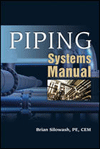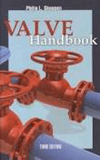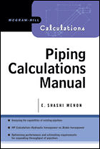The Department of Commerce has also cited critical circumstances, determining that this duty could be applied retroactively by 90 days. The pipe imports subject to the petition against China have surged from 10,000 tons in 2002 to more than 750,000 tons in 2007 - a 6,900% increase.
The action came as a result of a trade suit, filed in parallel with the International Trade Commission (ITC) and the Department of Commerce on June 7, 2007, brought by the Ad Hoc Coalition for Fair Pipe Imports From China and the United Steelworkers. The Ad Hoc Coalition includes Allied Tube & Conduit, IPSCO Tubulars, Northwest Pipe Co., Sharon Tube Co., Western Tube & Conduit Corp. and Wheatland Tube Co. On July 20, 2007, the ITC made a finding that circular welded pipe from China is causing material injury to the U.S. industry.
Armand Lauzon, CEO of John Maneely Co. (parent company of Wheatland Tube and Sharon Tube), said, “This important decision sends a strong message to China and other countries that government subsidies to pipe and tube producers will not be tolerated by the U.S. government. All we ask for is a chance to compete based on quality without the intervention of foreign governments, because when it comes to quality, U.S.-made pipe is the best. Over the past 18 months our company has had to close production facilities in Sharon, PA; Little Rock, AR; and Houston, TX, because of the surge of unfairly traded imports from China.”
Rick Filetti, president of Allied Tube and Conduit, stated, “Surging imports from China at prices below our raw material costs have had a significant adverse impact on our employees and on our company’s pricing and profitability. We understand that additional subsidies will be investigated between the preliminary and final determinations by the Department of Commerce and we look forward to a beneficial resolution of these cases.”
Once the new tariffs are published in the Federal Register, typically within five days, importers will be required to post bonds in the amount of the subsidy margins calculated by the Department. A preliminary determination in the companion antidumping investigation is due on Jan. 3, 2008. Countervailing duties are intended to offset the impact of government subsidies, while antidumping rules address instances when foreign producers sell at prices in the U.S. that are below the prices or costs in their home market.
Gilbert Kaplan, a partner at King & Spalding, one of the law firms representing the pipe makers, said: “This is only the second time the Department has imposed countervailing duties on Chinese exports and is the first U.S. countervailing duty case covering Chinese steel products. The imposition of duties on imported Chinese pipe should have a positive impact on U.S. pipe manufacturers and their employees. China is a major participant in the global marketplace, and it must abide by the laws that ensure fair trade.”
After the Department of Commerce makes final determinations in both the countervailing duty and antidumping duty investigations, the ITC is scheduled to complete its final investigation in the spring of 2008. The U.S. Commerce Dept. issued a preliminary finding on Nov. 6 that the Chinese government has been providing improper subsidies on circular welded steel pipe exports to the U.S., and will impose a tariff on most producers of 16.59%. That was the average rate of subsidy determined. Individual rates ranged from a high of 264.98% down to zero for one company.
The Department of Commerce has also cited critical circumstances, determining that this duty could be applied retroactively by 90 days. The pipe imports subject to the petition against China have surged from 10,000 tons in 2002 to more than 750,000 tons in 2007 - a 6,900% increase.
The action came as a result of a trade suit, filed in parallel with the International Trade Commission (ITC) and the Department of Commerce on June 7, 2007, brought by the Ad Hoc Coalition for Fair Pipe Imports From China and the United Steelworkers. The Ad Hoc Coalition includes Allied Tube & Conduit, IPSCO Tubulars, Northwest Pipe Co., Sharon Tube Co., Western Tube & Conduit Corp. and Wheatland Tube Co. On July 20, 2007, the ITC made a finding that circular welded pipe from China is causing material injury to the U.S. industry.
Armand Lauzon, CEO of John Maneely Co. (parent company of Wheatland Tube and Sharon Tube), said, “This important decision sends a strong message to China and other countries that government subsidies to pipe and tube producers will not be tolerated by the U.S. government. All we ask for is a chance to compete based on quality without the intervention of foreign governments, because when it comes to quality, U.S.-made pipe is the best. Over the past 18 months our company has had to close production facilities in Sharon, PA; Little Rock, AR; and Houston, TX, because of the surge of unfairly traded imports from China.”
Rick Filetti, president of Allied Tube and Conduit, stated, “Surging imports from China at prices below our raw material costs have had a significant adverse impact on our employees and on our company’s pricing and profitability. We understand that additional subsidies will be investigated between the preliminary and final determinations by the Department of Commerce and we look forward to a beneficial resolution of these cases.”
Once the new tariffs are published in the Federal Register, typically within five days, importers will be required to post bonds in the amount of the subsidy margins calculated by the Department. A preliminary determination in the companion antidumping investigation is due on Jan. 3, 2008. Countervailing duties are intended to offset the impact of government subsidies, while antidumping rules address instances when foreign producers sell at prices in the U.S. that are below the prices or costs in their home market.
Gilbert Kaplan, a partner at King & Spalding, one of the law firms representing the pipe makers, said: “This is only the second time the Department has imposed countervailing duties on Chinese exports and is the first U.S. countervailing duty case covering Chinese steel products. The imposition of duties on imported Chinese pipe should have a positive impact on U.S. pipe manufacturers and their employees. China is a major participant in the global marketplace, and it must abide by the laws that ensure fair trade.”
After the Department of Commerce makes final determinations in both the countervailing duty and antidumping duty investigations, the ITC is scheduled to complete its final investigation in the spring of 2008.





